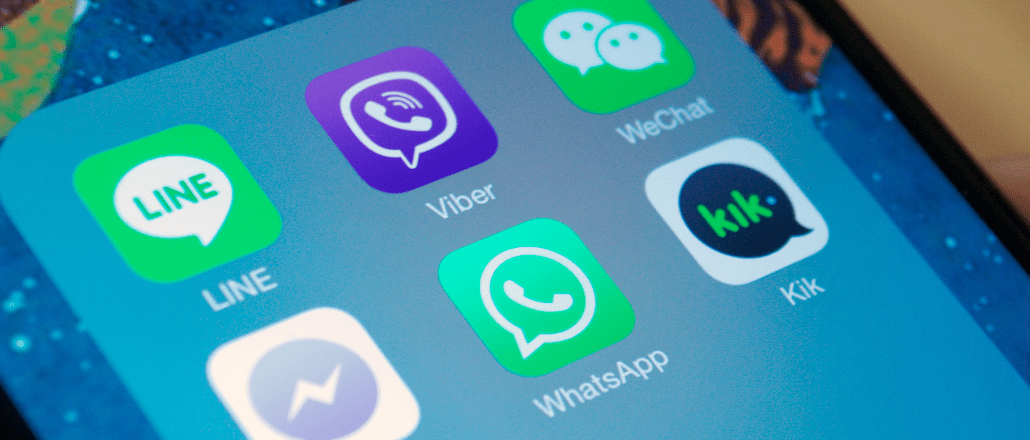Secure your place at the Digiday Publishing Summit in Vail, March 23-25
As WhatsApp starts sharing data with Facebook, some brands see dollar signs

In an about-face that rankled many of its core users this week, mobile messaging service WhatsApp announced it would relax its strident privacy restrictions. The company will soon begin sharing some of its users’ information — such as their phone numbers — with Facebook, which bought WhatsApp in 2014.
The announcement was viewed as a betrayal by users who pointed out that WhatsApp’s founders promised the Facebook deal would not affect privacy on WhatsApp. But while WhatsApp’s 1 billion users adjust to the news, some marketers are already seeing dollar signs. Brands, they say, will be able to deliver WhatsApp users receipts, shipping updates and urgent messages — for example, information about a delay to their upcoming flight.
But while unlocking the “black box” of WhatsApp’s encrypted data is tempting, some caution that brands who make the first step with the platform risk a negative reaction from consumers. They must decide if it’s a risk they can’t afford to miss.
The ‘death of apps’
It turns out service brands are already using the platform to answer customer queries. Dutch bank ABN AMRO receives an average of 3,000 messages via WhatsApp each week, despite promoting the channel very little, said Jeroen van de Ven, the bank’s social media manager. “[WhatsApp] has finally realized it’s time to open it in an official way,” he said.
According to van de Ven, WhatsApp’s current spam policy has made it difficult for brand users wanting to send out high volumes of messages. But if this is changed, they will be able to treat WhatsApp as seriously as other customer service channels like Facebook and Twitter.
Case in point: Raluca Efford, the head of digital and social engagement at insurer Direct Line Group, said WhatsApp customer service is now on the table at its planning meetings for next year.
Thomas Crampton, Social@Ogilvy’s managing partner, says there is “huge potential” for WhatsApp to evolve into an all-in-one operating system like WeChat and Line. Here, brands could actually operate services in-app when, for example,, users order a taxi or check in baggage before a flight.
“People will embrace, it and the rise of mobile messenger will kill off apps. WhatsApp has announced the death of apps,” he said.
Crampton’s clients are already working on bots and integrated services. The agency has just built its own on Facebook Messsenger, the Roombot, which helps staff find rooms, lunch menus and Wi-Fi passwords. Since launching a month ago, it gets 300 uses a day.
Creepy brands will fail
But while marketers are excited by WhatsApp’s potential for conversational commerce, there are likely to be casualties along the way — namely brands that come across as creepy.
Liam Pook, partnerships and emerging media director at agency Essence, warns that WhatsApp is seen as a personal platform where users aren’t expecting brand messages. He cited telecom O2’s decision to deliver third-party messages via SMS to its customers as a similar project that fell flat. “It was seen as spam,” he said. “It was always moaned about.”
The user information the platform will be sharing with Facebook raises a red flag for Lars Glenne, head of media strategy at DigitasLBi, who said the agency would need to understand exactly what WhatsApp’s data will do before exploring it with clients.
Using data with phone numbers is “quite far up the creepiness scale,” said Glenne. “If we then use the data and execute it wrong, it could really backfire on the brand,” he added. Leaked phone numbers are every marketer’s nightmare.
There are also concerns about users’ ability to opt out of the service. Pook points out that the regular device IDs used in advertising are deliberately changeable so users can choose not to be tracked. But you can’t opt out of your own phone number.
“They gave off the impression they cared about data privacy, but they are willing to share details of the phonebook. There will be a backlash,” he said.
More in Marketing

Why Edward Jones’ agentic AI trial comes with limits
Edward Jones tests agentic AI to drive marketing productivity, taking a measured approach as it stops short of full automation.

Footwear brands navigate uncertainty after latest tariffs flip-flop
Some 99% of footwear sold in the U.S. today is imported, according to the Footwear Distributors and Retailers of America.

Brands at eTail Palm Springs share lessons on the ‘messy middle’ of building AI tools
Here’s a rundown of lessons brands have shared about their AI implementations so far.





